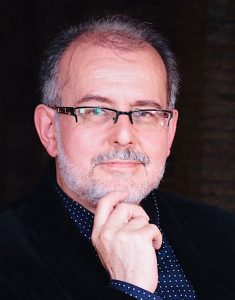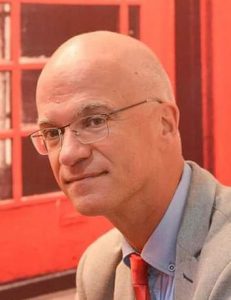
• Albert Sangrà Morer (Universitat Oberta de Catalunya) – May 26
Director for the UNESCO Chair in Education and Technology for Social Change. Full Professor at the Open University of Catalonia, Department of Psychology and Education, and researcher at the Edul@b research group. Ph.D. (Europaeus) in Education (Universitat Rovira i Virgili, Spain). Postgraduate at the Open University, UK, in Applications of Information Technology in ODE, and Diploma on Strategic Use of IT in Education by Harvard University, USA. B.A. in Philosophy and Education, Universitat de Barcelona, Spain. Recipient of the 2015 Award for Excellence in eLearning awarded by the World Education Congress Member of the founder team of this university (1994-95), where he has served also as the director of the eLearn Center. He has served as a consultant and trainer in several online and blended learning projects in Europe, America, Asia, and Australia, focusing on implementation strategies for the use of technology in teaching and learning and its quality.
His main areas of research are the uses of ICT in education and training and in particular, policies, organization, management and leadership in the implementation of online education (e-learning) and the guarantee of its quality, as well as the professional development for online education. He has worked as a consultant and trainer in several online and blended learning projects in Europe, America, Asia, and Australia, focusing on implementation strategies for the use of technology in teaching and learning and its quality assurance. He has also been a World Bank consultant.
Becoming Smarter: Lifelong Learning Ecologies for Personal and Professional Development
The concept of learning ecologies arises as a perspective integrating the catalysts of the current learning metamorphosis: the generation and maintenance of learning networks where collective knowledge is created, the initiative of individuals who seize the reins of their own learning process, and decide which opportunities they will pursue, and which they will not; in a context where the parameters of space and time are not limiting, and where learning is both visible and invisible (formal, non-formal and informal), based on activities, resources, relationships and interactions taking place in different contexts (face-to-face, blended and online) and processes.
This capacity for integration makes ecologies a valuable framework for analysing the ways and patterns in which different individuals and groups learn, both personally and professionally. Evidence of this is provided by the different research projects that have already been undertaken based on this concept. A specific focus will be given to the need of raising awareness to take greater advantage of the potential of learning ecologies: the more we know about how we learn, the better we perform and achieve our learning goals.

• Nic Nistor (Ludwig-Maximilians-Universität München) – May 27
has an initial background in electrical engineering, which he studied at the University “Politehnica” of Bucharest. He holds a PhD in educational sciences from the Ludwig-Maximilians-Universität München, Germany, Faculty of Psychology and Educational Sciences, where he now serves as a professor. At the same time, he is an associate editor of the Elsevier journal “Computers in Human Behavior”.
How smart are online communities? A Learning Sciences perspective
Due to potential advantages such as the collaborative construction of applicable knowledge, both face-to-face and online communities are regarded as learning environments and have become an established focus of the Learning Sciences research. The recently emerging discipline of Learning Analytics also includes online communities as an important research focus. This presentation gives an overview over knowledge communities from a Learning Sciences perspective and aims to build a bridge between this and Learning Analytics. The keynote includes examples of online community studies and includes suggestions for further research.
